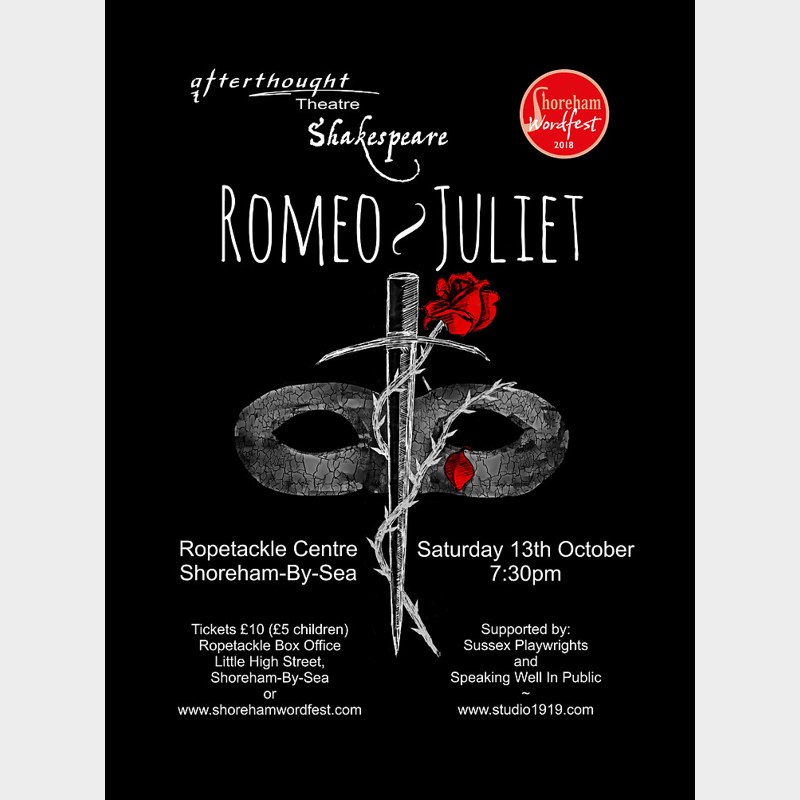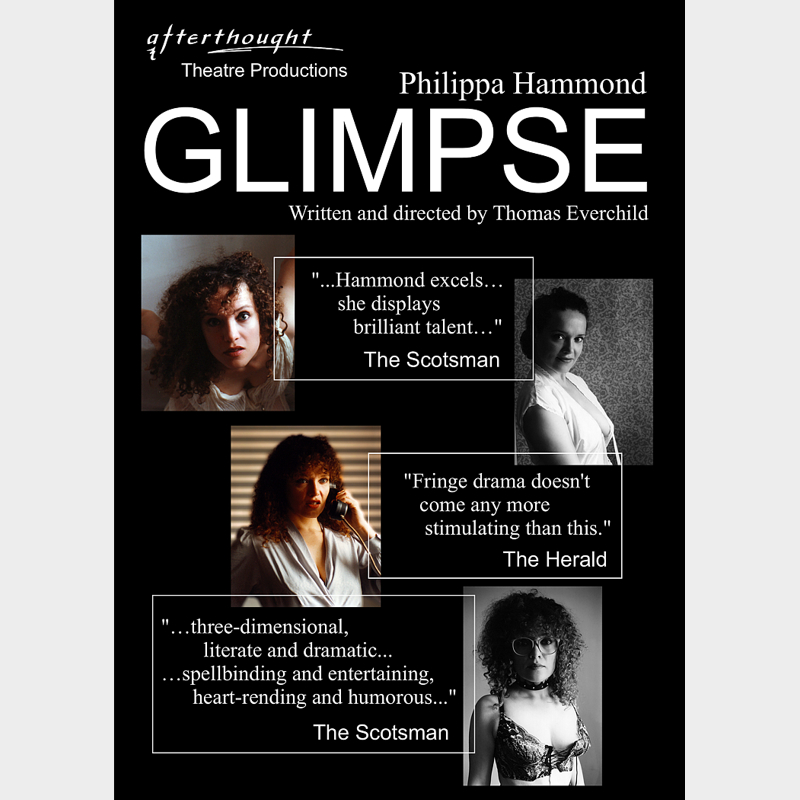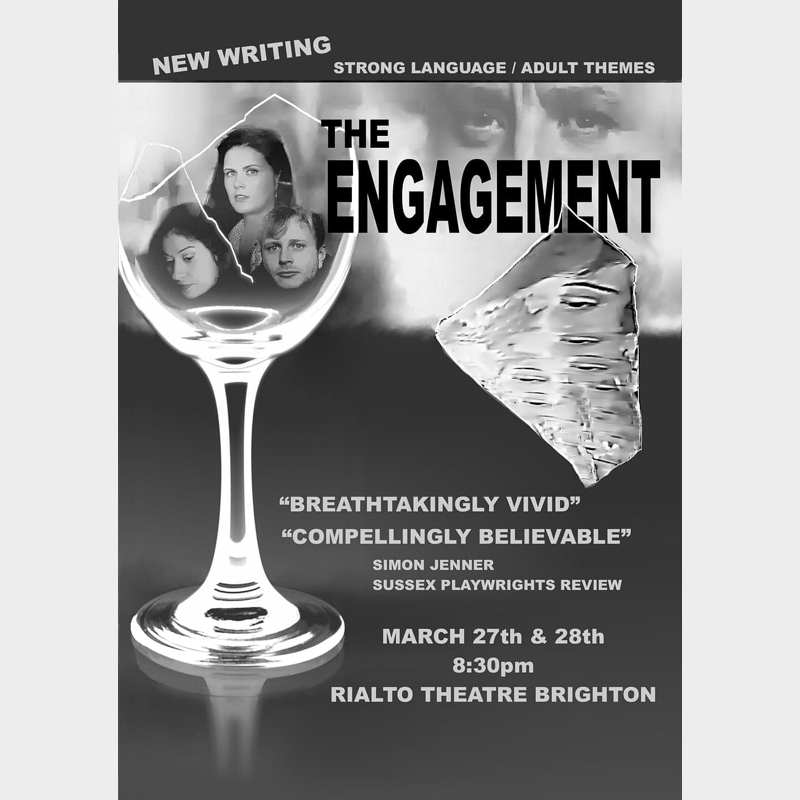Based on a true story. The John of the play – Wayne Liversidge – has again sat in on James Allen’s realisation of it. He’s now introduced by co-producer Philippa Hammond; Thomas Everchild co-produces and directs a taut, absorbing narrative as well as providing lighting and sound. Christina Thom’s EP Trade evokes bar backdrops and haunts lost weekends.
It’s back. James Alexander Allen whose experience lies in screenwriting, has turned a true story by actor Wayne Liversidge into a haunting three-hander of delirious love turned dipsy nightmare and plunging somewhere darker than drink could imagine.
After a superb read-through in the NVT foyer with Amy Sutton, Joshua Crisp and Philip Hammond, Steaming Ltd Production are mounting this work at the Rialto. Allen’s rewritten portions of the play expanding one role and foregoing a separate narrative voice. It’s a distinct improvement on already harrowing material which played so well previously. It’s also relocated to Hove from Sheffield and one half-sister is in this story-line Spanish-reared.
The Rialto’s stage is small, but works perfectly for this three-hander; use of bright screens semaphores kitchen walls, restaurants and living space. Use of chairs and a behind-scenes implied kitchen solidly frame everything and the actors block well, making full use of the stage from lurch to violence with a bottle.
It’s also a true story and the John of the play – Wayne Liversidge – has again sat in on Allen’s realisation of his story. He’s now introduced by co-producer Philippa Hammond; Thomas Everchild co-produces and directs a taut, absorbing narratives well as providing lighting and sound. Christina Thom’s EP Trade evokes bar backdrops and haunts lost weekends.
Faith Elizabeth as Luanne joins Eden Avital Alexander’s dipsy Gerri and Owen Bleach’s John mulling on this dream of love, rather like A View from the Bottle.
The half-sisters meet just before Gerri’s next blind date is meant to show. An anxious Luanne enjoins Gerri to order orange (there might have been some on show) though all we see is a bottle and two glasses, pouring out what looks like Rosé (it’s meant to be red so this might be adjusted). Geri’s last eight dates have failed.
John’s dazzled by the disinhibited and slightly drunk Gerri who makes it known to bashful John after a few bonding moments of pure silliness (of the ‘I love a cheeseball’ kind) that she’s really attracted. At this point you register faint anxiety. It’s too perfect, the gorgeous uber-bright linguist Gerri gives everything. But it’s also the climax of John’s life.
And it’s also love, pure and complex on both sides.
John’s initially enthused by Gerri’s blokey drinking: ‘Now that’s impressive, that!’ as Gerri downs a red in one. He initially matches Gerri in wild drinking and after a wonderfully pointless paean to a dog and another wild meeting-up, they fall into each others’ arms. For Gerri, commitment and having John move in is a no-brainer. There’s a hurtling elliptical story about a dog jumping through a window, bursts of laughter and stagger. All along you’re made aware of the anomalous urgency (even further tightened up here, as they sleep together straight away), Gerri’s sudden switch of temper when her sister phones, or when John even hesitates about moving in (not for long), and the rapid rolling-back into regret and apology. Isn’t she drinking a tad too much? Imperceptibly John slowly ceases drinking himself. He also gives up going to any football matches with friends and on one Final, finds he can no longer afford his own modest lifestyle.
Re-enter Gerri’s sister Luanne. Hadn’t John noticed? Well he has now. All those sudden mood-switches on the slightest eddy of doubt, reversed by a swift nip from a bottle of Smirnoff, or more cunningly water bottles filled with vodka John is later found testing – by Gerri. Nevertheless Luanne’s clear that not only is John the best thing that’s happened to Gerri, Gerri really does return his love under the occasional haze.
Soon we spiral into Gerri realising John’s wised up, hiding her addiction down sofa backs and the rest of it. Detailing Gerri’s apparent resolutions, her breakings of these and a final desperate attempt to break free would act as a spoiler.
Avital Alexander and Bleach effortlessly enact realism, tenderness and a terrible recognition what it’s like to be in love and dependant at the same time. Bleach’s energetic John is no pushover, and he finally has to turn. There’s good scenes between him and Faith, and again between Faith and Avital Alexander. Latterly the emotional crunch pushes them both to an emotional truth and explosive outcome you’d not figure from the opening.
Co-dependency and a desperate need to keep his lover alive as well as his love, means Bleach’s John makes something of what might seem a white-written part. In fact there’s a dogged truth-seeking in John that Bleach plays up against Avital Alexander’s incandescent Gerri, a compellingly believable portrait of a young woman in alcoholic freefall. Bleach matches her in internalised then all-too-projected agonies.
The final scenes are quite devastating, starting with a physical assault. Faith does sterling work as sensible sister Luanne earlier but here in the last third she explodes at a higher pitch with anxiety, despair and grief. The mutual flame of partners Bleach and Avital Alexander burn everything else away and the final trio’s a shock no-one expects.
This is a true story, and heart-breaking enough. There’s a gritty cautionary note sounded too, but most of all this is about love against unimaginable odds.
Allen’s new version presented for Hove Grown is a fine script: idiomatic, even swifter, keenly observant in its naturalism. Which makes it all the more shocking. It proves one of the absolute highlights of 2018’s Hove Grown Play Festival.
Fringe Review
Simon Jenner





